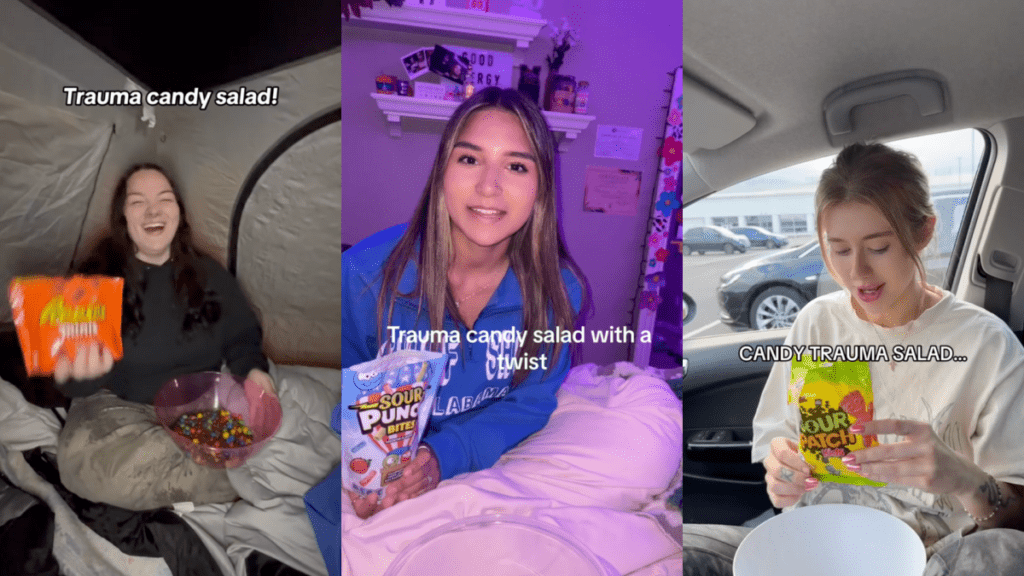The Bittersweet Truth Behind the Trauma Candy Salad Trend: A Deep Dive into Mental Health, Humor, and Vulnerability
Subtitle: Exploring the uncharted territories of TikTok, where mental health struggles find a strange, dark solace in sweet treats
As a seasoned journalist for Media Talk Africa, it’s hard to ignore the latest phenomenon that has gripped the hearts of thousands on TikTok – the trauma candy salad trend. This deceptively innocent-sounding hashtag has stirred up a storm of online conversations, as young creatives open up about their most harrowing life experiences, wrapped in a tongue-in-cheek package, replete with sweet, colorful treats. The term “trauma candy salad” is both a eulogy to the comfort food and a euphemism for the unspeakable pain, the scars etched onto their psyches.
For this article, I spoke with experts like Eloise Skinner, a London-based psychotherapist, and Dr. Daniel Glazes, a clinical psychotherapist, as well as TikTok content creators who have participated in this trend. What follows is an examination of what drives this peculiar phenomenon – a manifestation of the struggle to balance the fragility of the human psyche, the push for validation in a virtual world, and the crutch of dark humor as a coping mechanism.
A glimpse into TikTok’s world of one-minute clips reveals the magnitude of what people are disclosing. There are confessions of sexual abuse, bullying, divorce, bad breakups, eating disorders, health issues, loss, and even parental abandonment, all couched in stark, casual candor – a tone often punctuated by sweet, sugary treats.
When asked how they chose to share these stories, Abby Bailey, a 23-year-old from Georgia, replied unapologetically that she shared hers to potentially gain traction online. As for Emma Cassidy, the 25-year-old, she says that after her friend had shown her videos of others doing the trend, they felt compelled to join in – an instant bonding experience through shared tragedy.
Is the trauma candy salad an empowering gesture – a cry for help rebranded as entertainment – or merely an ill-judged exercise in poor taste? Experts caution about the consequences of “dumping” traumatic experiences publicly, with little control over the ensuing reactions or subsequent mental health support. Many participants have come forward on TikTok, confessing that the idea of involving a qualified mental health professional never occurred to them or seemed like a daunting undertaking.
A darker underbelly exists in this whirlwind, one where sharing trauma might momentarily ease personal pain but may also potentially perpetuate unhealthy coping habits. I cannot help but wonder – will the unbridled emotional candor of TikTok ultimately redound to our collective sanity, or are we chasing a fleeting dopamine fix and ignoring the complexities of therapy and human support?
Through this odyssey of internet-facilitated empathy, a fundamental question begins to form: Can raw vulnerability become an endorphin high for the likes of us – or could it become an unbroken cycle of despair?
For TikTok users worldwide, can we – dare I venture – laugh at the shadows of our shared pain – or perhaps use the healing power of laughter to ease the scarring – to look back, with a fragile smile, and acknowledge what we’ve survived?
With the cacophony of voices raised online, now is the perfect moment for us to reassess these questions – not as prurient onlookers but as an active catalyst for positive change.
Share your thoughts in the comment section!
